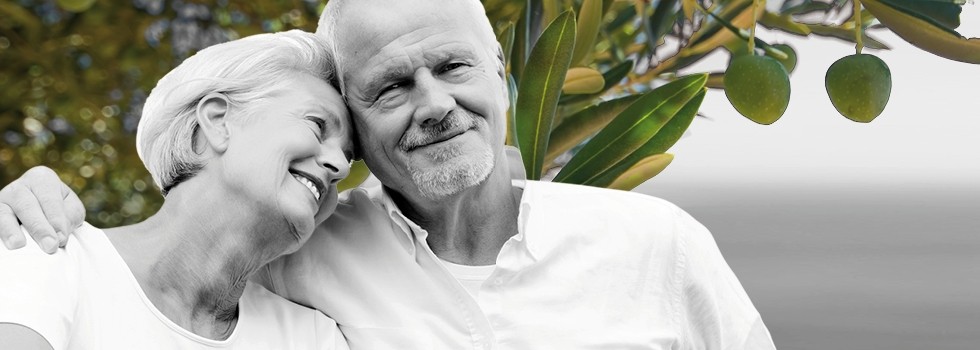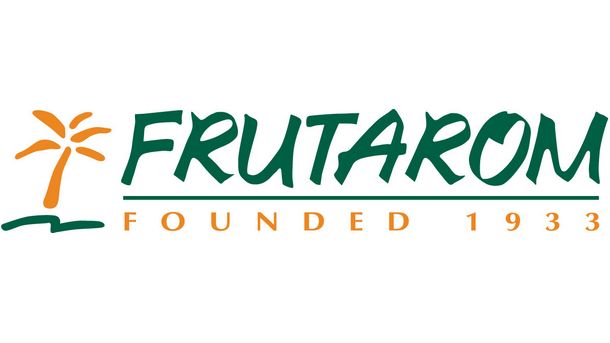Promotional Features
How Frutarom is applying science to the Mediterranean diet to promote healthy cardiovascular aging
How Frutarom is applying science to the Mediterranean diet to promote healthy cardiovascular aging
The already significant burden cardiovascular disease imposes on individuals and economies is set to increase in the coming years as the populations of most countries age. This is increasing the need for products that support the healthy aging of the cardiovascular system. At Frutarom Health, scientists are analyzing the Mediterranean diet to provide people with such support.
Today, many people in Western countries have risk factors for cardiovascular disease. In the United States, one-third of adults have high blood pressure, according to the American Heart Association. More than half of the adult population has higher-than-ideal levels of cholesterol.
Demographic data suggest the number of people living with these risk factors will increase in the years to come. The risk of cardiovascular disease rises sharply as people enter their 60s, 70s and 80s. More and more people are forecast to pass these milestones in the years to come. Globally, the number of people aged 60 years or older is set to grow from 901 million to 1.4 billion between 2015 and 2030, according to the United Nations. By 2050, the figure is forecast to hit 2.1 billion. In the US, one in four people is expected to be aged 60 years or older in 2060.
This demographic change and the accompanying increase in heart disease will hurt the economy. Cardiovascular disease cost the US economy an estimated $555 billion in 2016, according to a study commissioned by the American Heart Association. That makes it the costliest disease in the US today. There is scope for the situation to become far worse. By 2035, costs are forecast to rise to $1.1 trillion. Costs associated with people aged 80 years and older are expected to triple.
Reducing the risk of cardiovascular disease
The good news is we know in theory how to cut the proportion of people who suffer from heart disease. Firstly, we can identify who is at risk. In the Western world, many people know they have an increased risk of a heart attack or stroke long before they suffer such an event. The US Centers for Disease Control and Prevention estimates 47% of Americans have at least one of the three main risk factors for heart disease: High blood pressure, high cholesterol and smoking.
If these risk factors are identified early enough, patients can improve their outcomes by changing their lifestyles. Physicians recommend stopping smoking, exercising more and making changes to diets to support the healthy aging of the cardiovascular system.
In searching for a blueprint for heart healthy diets people have long looked to countries around the Mediterranean Sea. Interest in the diets of people in the region grew in the second half of the 20th century as researchers gathered evidence the populations were healthier than those in wealthier parts of the world, such as the US.
The studies linked diets rich in fruits, vegetables and olive oil to improved heart health, changing dietary habits around the world. People who switch to this Mediterranean diet while exercising and cutting out unhealthy foods, drinks and lifestyle choices can improve their heart health. A 7,447-subject clinical trial written up in the New England Journal of Medicine in 2013 linked the Mediterranean diet to a 30% reduction in the risk of cardiovascular events relative to a control diet.
Yet, the continued rise of heart disease suggests knowledge of these benefits is failing to translate into improved health outcomes. To improve matters, researchers have identified the molecules in the Mediterranean diet that improve heart health and developed products that contain these botanical extracts.
Market data show there is demand for such products. In 2016, Euromonitor valued the global market for heart health-positioned foods and beverages at $8 billion. Two years earlier, Nutrition Business Journal valued the cardiovascular supplement market at $2.5 billion.
Applying science to traditional plant uses
Frutarom Health is among the companies seeking to understand the molecular mechanisms that cause the Mediterranean diet to improve heart health outcomes. This approach goes beyond basic links between eating foods such as olives and cardiovascular health to show what molecules in the foods are active and how they act on biological pathways associated with heart health.
To enable this mechanistic approach and build on the expertise it already had at its R&D and extraction facility in Switzerland, Frutarom invested in its facilities and acquired natural plant extract specialist Nutrafur. The resulting teams are using their decades of experience of extracting active compounds from natural sources to access flavonoids and other polyphenols and explore how they positively affect blood pressure, cholesterol, vascular protection and blood sugar.
These researchers have contributed to the accrual of knowledge about how plant extracts work. In the case of citrus flavonoids, researchers have shown which molecules are the most biologically active and linked them to antithrombotic, anti-ischemic, anti-oxidant and vasorelaxant effects.
More specifically, research has shown flavonoids can improve coronary vasodilatation, lower the risk of platelets clotting and prevent the oxidation of low-density lipoproteins (LDLs). Some of these outcomes stem from flavonoids’ inhibition of the synthesis and activity of pro-inflammatory mediators.
At Frutarom, research into these areas has led to the development and testing of heart healthy botanical extracts. These products seek to capture what it is about plants such as olive and purslane that promotes cardiovascular health and use it to improve outcomes.
Developing heart healthy products
Olive leaf extract Benolea is one product to emerge from these efforts. Frutarom put the extract through animal studies and two clinical trials to confirm its effect on blood pressure.
In the larger trial, 232 people with stage-1 hypertension were randomized to receive either Benolea or the drug captopril. Systolic blood pressure fell by a similar amount in both arms of the trial. The data support the positioning of Benolea as a product for maintaining healthy blood pressure.
Frutarom turned to another plant with a history of use in the Mediterranean region and beyond to develop its second product, Portusana. In the near east, the purslane herb was traditionally used to manage diabetes. Researchers have since revealed some of the mechanisms that may underlie the use of the herb in this context, leading to the development of Portusana.
The purslane herb extract is positioned as a glucose management product. Ineffective glucose management can lead to diabetes, which, in turn, is linked to cardiovascular disease. As such, use of Portusana to cut absorption of glucose, modulate insulin sensitivity and increase glucose uptake by cells may have implications for the management of cardiovascular health.
Frutarom demonstrated the effect of Portusana on these mechanisms and glucose management in in vitro tests and a clinical trial. The trial enrolled 63 patients with type 2 diabetes and randomized them to receive either a purslane herb extract or placebo. After 12 weeks, levels of HbA1c among responder participants in the purslane arm had declined by 0.81%, outperforming the placebo group by 49%. HbA1c is a long-term marker of blood glucose levels.
The third product in Frutarom’s heart health portfolio, Citrolive, shows the direction the company is heading. Rather than use one botanical, Citrolive combines extracts from olive leaves and bitter oranges. The combination is intended to make Citrolive act on both vascular elasticity and lipid profile regulation.
Studies run in mathematical models, animals and humans have linked Citrolive to declines in triglyceride and oxidized LDL levels, plus protection against the hardening of the arteries.
Taking a multifactorial approach to heart disease
Frutarom is now testing Citrolive in combination with other compounds. The dual action of the product and desire to combine it with other compounds stem from Frutarom’s belief in taking a multifactorial approach to the management of cardiovascular health.
This approach is made possible by the investments Frutarom has made and the knowledge gained by researchers both inside and outside the company. By collaborating with universities, contract research organizations and other groups with cardiovascular expertise, Frutarom is positioned to continue developing products that support healthy cardiovascular aging.


